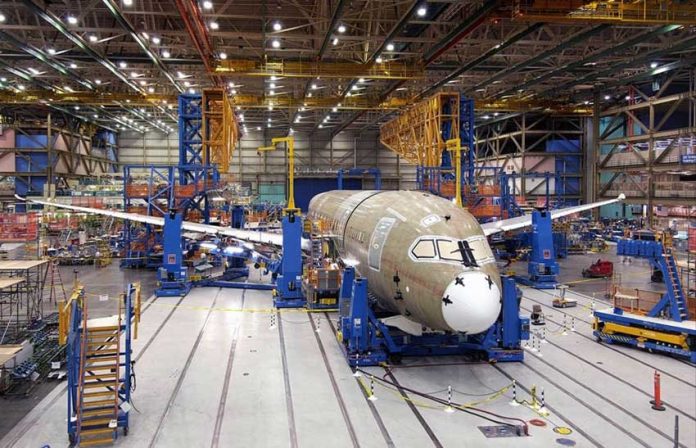Failure to reach a trilateral trade agreement in North America would make the region less attractive to foreign investors, drive up production costs and have a negative impact on consumers, according to a former Mexican trade official.
Antonio Ortiz Mena, a member of the Mexican team that negotiated the 1994 North American Free Trade Agreement (NAFTA), told the newspaper Milenio that if Canada isn’t brought into the deal already reached by Mexico and the United States, production chains will face higher costs and lose efficiency.
“Production chains that have been established in North America have operated for a quarter of a century with regional rules in the automotive sector but also in the aerospace sector and the manufacturing sector in general. If you change the trilateral rules for a collection of bilateral ones, that will bring problems,” he said.
Ortiz, now a senior vice-president at the business strategy firm Albright Stonebridge Group, explained that reduced efficiency and higher costs would result in a loss of export markets for North American-made products due to strong competition from other regions of the world, especially Asia and Europe.
“One additional negative consequence is that North America would be less attractive for foreign investment from outside the region,” he added, explaining that foreign companies that make products in one of the three NAFTA countries operate under the same regional trade rules as a Mexican, American or Canadian company.
United States President Donald Trump notified the U.S. Congress Friday that his administration intends to sign a revised trade agreement in 90 days with Mexico — and Canada, if the latter “is willing” — after talks aimed at including Canada in the pact failed to meet the Friday deadline he set.
Talks are set to continue this week but Trump has signaled that if Canada wants to be part of a new trilateral pact, it will have to accept U.S. terms that appear non-negotiable.
The U.S. president said on Twitter Saturday that “there is no political necessity to keep Canada in the new NAFTA deal.”
In the same tweet, Trump added: “If we don’t make a fair deal for the U.S. after decades of abuse, Canada will be out. Congress should not interfere w/ these negotiations or I will simply terminate NAFTA entirely & we will be far better off . . .”
In a second continuing tweet, he reiterated his view that “NAFTA was one of the WORST trade deals ever made” and charged “we make new deal or we go back to pre-NAFTA!”
Unnamed Canadian officials told the Canadian Broadcasting Corporation that they wouldn’t respond to Trump’s Twitter tirade, adding that it wasn’t the first time he has used intimidatory tactics during trade talks.
The comments are “designed to pressure us and it’s not going to work,” they said.
A spokesman for Canadian Prime Minister Justin Trudeau, asked to comment on Trump’s threats, declined to address them directly.
“As we’ve said all week, we’re working toward a modernized NAFTA, a modernized NAFTA that will be good for Canada and the middle class,” Cameron Ahmad said. “We will only sign a good deal and we will not negotiate in public.”
Canada’s opposition Conservative Party was critical of the absence of a new trade deal with the United States, charging that the Canadian government’s negotiation was “botched” and that Canada had been left on the sidelines in talks between Mexico and the U.S.
“The Mexicans simply outhustled us,” said Lisa Raitt, the party’s deputy leader.
“They knew they needed to get a deal, how important it was to their country. And when they had the opportunity to move their auto talks on bilateral standards — or auto tariffs — to the next level of talking about everything else, including intellectual property and sunset clauses, they took the opportunity.”
However, Canadian Chamber of Commerce president Perrin Beatty took a different view, stressing that Mexico had negotiated with the United States for five weeks whereas Canada only had four days last week to try to resolve the differences with its neighbor. He added that Canada should continue to work towards reaching a successful deal.
Mexican officials, and president-elect Andrés Manuel López Obrador and members of his team, have said consistently that Canada should be included in an updated NAFTA.
The Secretariat of Foreign Affairs and the Secretariat of Economy said in a joint statement Friday that the “government of Mexico will continue to closely monitor” the negotiations between the United States and Canada and “it would continue promoting an agreement of which Canada is part.”
Source: Milenio (sp), El Financiero (sp)
